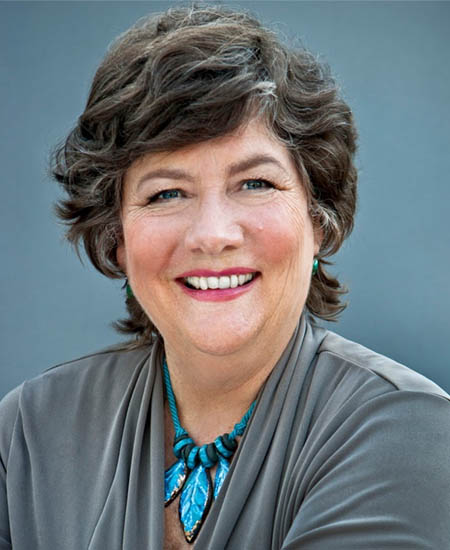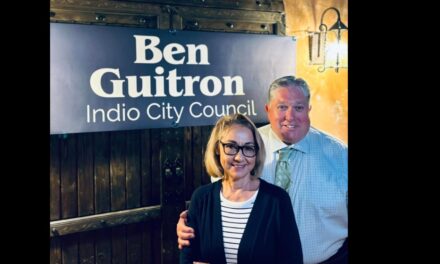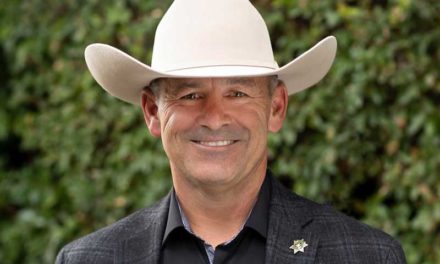One of three women vying for two seats on the Palm Springs City Council takes credit for bringing down former Mayor Steve Pougnet.
Judy Deertrack, 67, a land use consultant, attorney, said she “stood up” when she saw things amiss in City Hall. Six men and women are vying for two seats on the Palm Springs City Council in November. Uken Report submitted questions to each candidate and all accepted.
Other candidates are Glenn Flood, Harry Hampton, Christy Holstege Lisa Middleton and Robert Stone.
Each candidate received identical questions. Their answers appear as they were submitted and were not edited or altered.
Question: Exactly why are you running?
Answer:
I was born in Mariposa, Calif., in the mountains, and later moved to the farm community of Fresno. These small communities were maintained by community service and volunteer activities. I grew up in this tradition. I
later connected to the traditional Native American community of Taos Pueblo through marriage, and thrived on experiencing their cultural traditions and unique connection to the land. I was a project manager in achieving a World Heritage Designation for Taos Pueblo for its living cultural status.
When I returned to California, I achieved a Master’s Candidacy in Urban Planning, and worked with the County of Riverside as a primary planner in the Valley during the recession. The commercial projects were successful,
well integrated into the community, and respectful of natural boundaries.
When I came to Palm Springs I discovered the City had disconnected badly from basic planning and legal obligations and had an 85 percent record of noncompliance on its development approvals over the last decade.
My primary work was the establishment of a data file that went to the FBI, in connection with a research partner, Robert Stone, and our work resulted in the FBI indictments.
Question: What quality do you have that you believe your opponents do not? In other words, what sets you apart?
Answer:
During the years that the alleged racketeering occurred in Palm Springs, candidates either stood up or stood by. I stood up alongside Robert Stone. I came forth and challenged illegal practices out of a love and respect for
my community and I acted in the public interest. This was to provide a fair and balanced planning future for Palm Springs so we could move into the opportunities and balanced growth.
I also think my compassion runs deeper, or people who were in the system during the time favors were done to developers would have been more concerned about the public impacts, had every reason to know, or closed their minds to those telling them.
Question: How much to you expect to spend on your race?
Answer:
I run a modest and trim budget, and my ads are done and paid for. Most of the major expenses have been incurred and paid. It is or will be about $50,000 or $60,000. I have taken no special interest monies. I am not financially supported by the incumbents or their interests.
Question: Who is your political role model?
Answer:
Bella Abzug, an early Congresswoman who was honest, forthright, on her toes at all times, and tough as nails – yet compassionate.
Question: What are the three most notable endorsements you have received to date?
Answer:
Small Hoteliers of Palm Springs, the Electrical Union, and People for Proper Planning
Question: Who recruited you, or did you decide to run on your own?
The racketeering and bribery scheme (alleged) made the decision for me.
Question: What will you specifically do to restore trust in City Hall?
Answer:
I have already accomplished the FBI probe; I have authored a study on commercial permits that was submitted to Planning Commission and City Council resulting in 68 recommendations for change, and the Ethics and
Government Reform Committee received its 55-member participation as a result of indictments. Now, the City has committed to a General Plan Update and an update on a 50-year old zoning scheme after my report showed strong areas of legal non-compliance. I catalyzed these changes, along with Robert Stone, my co-worker on the data behind the indictments.
My Blueprint for Growth is as follows:
I SUPPORT partnering with State Law Enforcement for the return of more than 200 million taxpayer dollars on the Downtown Plan. Without reclaiming those funds the city cannot meet its nearly quarter billion dollars
of retirement and healthcare obligations.
I SUPPORT creating a forum that brings both sides of the Vacation Rental issue to the table. Neighborhoods need to be protected against inappropriate business encroachment.
I SUPPORT increasing tourism by expanding our Arts & Entertainment sector with targeted Economic Development Programs that will further small business growth.
I SUPPORT maximizing development of commercial property without enlarging the height and mass of our built environment or encroaching on the beauty of our unspoiled lands.
I SUPPORT smart business sector planning that enhances the city’s historical, cultural and architectural heritage, because this is why we choose to live here and others choose to visit.
I SUPPORT the conservation of our natural resources, including vigorous protection of hillsides and environmentally sensitive lands.
I SUPPORT Planned Growth by following our General Plan. Over 85 percent of project approvals in the last decade violated the laws and ordinances of the City.
I SUPPORT the development of moderate and low-income housing, neglected by the city for over a decade, and recognize the link between housing shortages and homelessness.
Question: Do you consider yourself a liberal, conservative or moderate and what does that mean to you?
Answer:
I consider myself a liberal Democrat, but as I gain more experience at life, the distinctions are breaking down. I still strongly support the Democratic Agenda, but I also believe we are shutting out other valuable voices and
abusing people trying to tell us something important. There is good in the worst, there are flaws in the best. Thurgood Marshall as an African American Supreme Court Justice, said it with panache, “The measure of a
country’s greatness is its ability to retain compassion in times of crisis.”
Question: Is it appropriate for Palm Springs City Council candidates to accept campaign contributions from outside Palm Springs?
Answer:
It is not illegal to do so, nor is it unethical to do so, but when the amount of money is significant, you can guess that outside interests are influencing local decisions, and usually for the wrong reasons. What counts in an
election is the qualifications of the candidate to serve Palm Springs, not outside influence on the vote.
Question: What is the single biggest challenge facing Palm Springs?
Answer:
Somewhere along the way, Palm Springs lost integrity in government. The City’s former mayor and largest downtown developer is facing a 31-count indictment for bribery and influence, and yet the City proudly went to the
top of the Kimpton Hotel, changed the name of Wessman Corporation to Grit, changed the name of the Developer Wessman to his son-in-law, Michael Braun, and went forward in a new trust relationship with the concept that a person is innocent until proven guilty.
Wow! The criminal law standard is guilt “beyond a reasonable doubt.” The civil standard is a preponderance of evidence and one does not wait for criminal conviction with overwhelming evidence that major monies passed hands.
Please read Corruption on Steroids, the Story of the City of Bell that moved well before conviction to secure over $100,000,000 in monies returned. The alleged illegal subsidies in Downtown exceed $200,000,000, and the
City has repeatedly refused to partner with the State of California to obtain information or assistance in civil interim measures.
In the words of District Attorney Mike Hestrin, “Well, with all the bribery, it was buying of influence, and so this large amount of money was paid to the Mayor of Palm Springs for his influence on the City Council and off the
City Council. It’s not simply just paying for one particular vote of one particular official action, it’s larger than that, it’s broader than that. It’s a “pay for influence” and the mayor was very influential. He sat on
Commissions that dealt with these developments and these two individuals had a lot to gain from these developments.”
There are at least 12 key individuals specifically named in the indictments that appear to collaborate with either Pougnet, Braun, or Meaney to influence the vote in an administrative tribunal of law where the vote changed from a vote on evidence in a public hearing to a vote based upon influence. What is disturbing, is that Michael Braun, the “new” developer, appears throughout the indictments as a major party of interest in the bribery scheme. What are we doing? The State could help us remediate.
Along with the challenge to integrity, the City is (allegedly) a quarter billion dollars in arrears in paying for retiree health care and pensions; and it has granted out, during the bribery scheme period, over half a billion dollars in subsidies to a small handful of hotels. City Councilor Ginny Foat quoted that the city is facing austerity measures, and in her words, “possible bankruptcy.” Along with a record of 85 percent non-compliance with its plans, laws, and ordinances on development over the last decade, this system is clearly geared to development influence rather than public interest.







